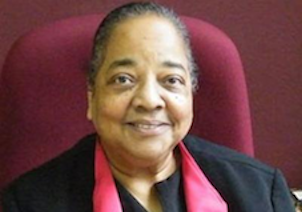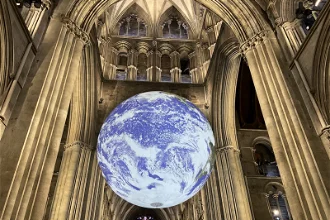Viewpoint: Harnessing the potential of human mobility

Leela Ramdeen
Today, 18 December, is International Migrants Day. The theme this year is: Harnessing the potential of human mobility.
As the UN states: "A broad range of factors continue to determine the movement of people. They are either voluntary or forced movements as a result of the increased magnitude and frequency of disasters, economic challenges and extreme poverty or conflict.
"Approximately 281 million people were international migrants in 2020, representing 3.6 per cent of the global population.
"All these will significantly affect the characteristics and scale of migration in the future and determine the strategies and policies countries must develop in order to harness the potential of migration while ensuring the fundamental human rights of migrants are protected... Migrants contribute with their knowledge, networks, and skills to build stronger, more resilient communities."
In a message to those gathered at the 2nd Conference on International Migration (2018) hosted by the Holy See and Mexico, Pope Francis rightly stated that migrants are people, not numbers, who can enrich the society that welcomes them. As Vatican News reported, he said the "life experiences and values" of migrants can contribute to the enrichment of society.
He "encouraged participants in their efforts 'to ground responsibility for the shared global management of international migration in the values of justice, solidarity, and compassion.' He said a change of mindset is required to see migrants as a benefit to society. 'We must move from considering others as threats to our comfort to valuing them as persons whose life experience and values can contribute greatly to the enrichment of our society'... we are called 'to encounter the other, to welcome, to know, and to acknowledge him or her.'"
He said: "the main issue surrounding migration is not one of numbers but of persons, who have their own culture and aspirations. 'These persons, our brothers and sisters, need 'ongoing protection', independently of whatever migrant status they may have.' Tear down walls. He said their fundamental rights and dignity must be protected, especially those of migrant children."
I am still in London and have been meeting many of my friends who came to Britain years ago as migrants and who have/continue to contribute much to Britain. Some have been discussing with me issues relating to the Windrush scandal. The Windrush generation refers to about 550,000 Caribbean immigrants who arrived in Britain between 1948 and 1973.
As my friend, Henry Saunders and Team prepare to celebrate the life of calypsonian, Adlwyn 'Lord Kitchener' Roberts in TT, we know that he was a Windrush migrant. He disembarked at Tilbury Docks, England in June 1948 from the MV Empire Windrush. On doing so, he performed his specially written song: "London is the place for me, London this lovely city".
Olivia Petter wrote in the Independent newspaper on Windrush Day - 22 June 2021: "The Windrush Scandal saw hundreds of Caribbean immigrants living and working in the UK wrongly targeted by immigration enforcement as a result of the government's 'hostile environment' policies. As a result, many elderly people were suddenly being barred from working, refused access to government services, and lost access to welfare benefits. In some cases, they were even detained and deported...
"An independent review into the scandal has since found there was a 'profound institutional failure' that wrongly stripped migrants of their rights, and the current home secretary Priti Patel said 'on behalf of this and successive governments I am truly sorry for the actions that span decades'".
In TT what are we doing to harness the potential of human mobility? Pope Francis asks us to develop a strategy combining 4 actions to support Migrants and Refugees: welcoming, protecting, promoting and integrating. He reminds us that Migrants and Refugees are not pawns on the chessboard of humanity, and urges us to have respect for their lives and dignity.
The earth, says Pope Francis, is our common home and we are a universal family. Together, we are called to build the common good, that is, to create conditions in which each person can realise his or her potential. Sadly, we do not have the required legislative framework in TT to allow migrants and refugees to realise their potential. Archbishop Jason has rightly said that "we (the church) have to welcome whoever comes and ensure whoever comes will be treated like a human being, with decency. If we don't do this, we will be building the next problem for T&T in 10 to 20 years' time."
Leela Ramdeen is Chair of the Catholic Commission for Social Justice & Trinidad & Tobago Archdiocese's Ministry for Migrants and Refugees


















